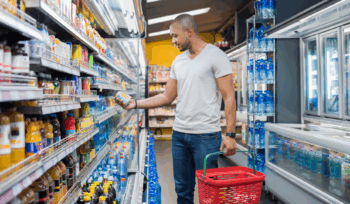- 30/07/2025
- Posted by: Janick Pettit
- Categories: Articles, Retail, South Africa, Supermarkets
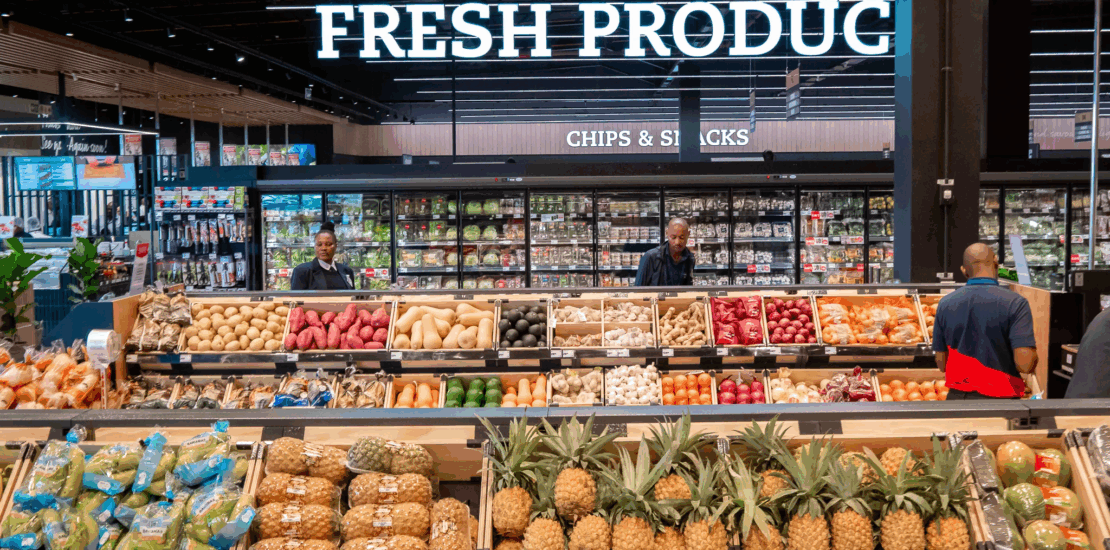
Retail in South Africa is undergoing a dynamic transformation, with grocery players adapting to diverse consumer needs through innovative formats and services. From low-cost refill stations and short-dated discount stores to premium food halls and lightning-fast delivery apps, the country’s retail landscape is becoming more segmented and customer-driven.
As economic pressures, digital habits, and lifestyle preferences evolve, South Africa’s grocery market is becoming increasingly competitive. The entry of global players such as Walmart, set to open its first South African stores later this year with its “Every Day Low Prices” model, further raises the stakes. Local retailers are being pushed to move beyond the traditional supermarket format and offer more flexible, targeted, and value-oriented shopping experiences.to move beyond the traditional supermarket format and offer more flexible, targeted, and value-oriented shopping experiences.
Affordable grocery shopping in South Africa: refill stations and short-dated bargains
At the most affordable end, a new pilot store called Skubu has opened in Johannesburg. Run in partnership with local tech company Sonke, Skubu lets customers bring their own containers and buy staples like maize meal and cooking oil in exactly the quantities they need. Prices are up to 50% lower than at traditional retailers like ShopRite, Pick n Pay, or Checkers. The refill model not only cuts costs, it also reduces plastic packaging—offering a practical, no-frills alternative for budget-conscious shoppers.
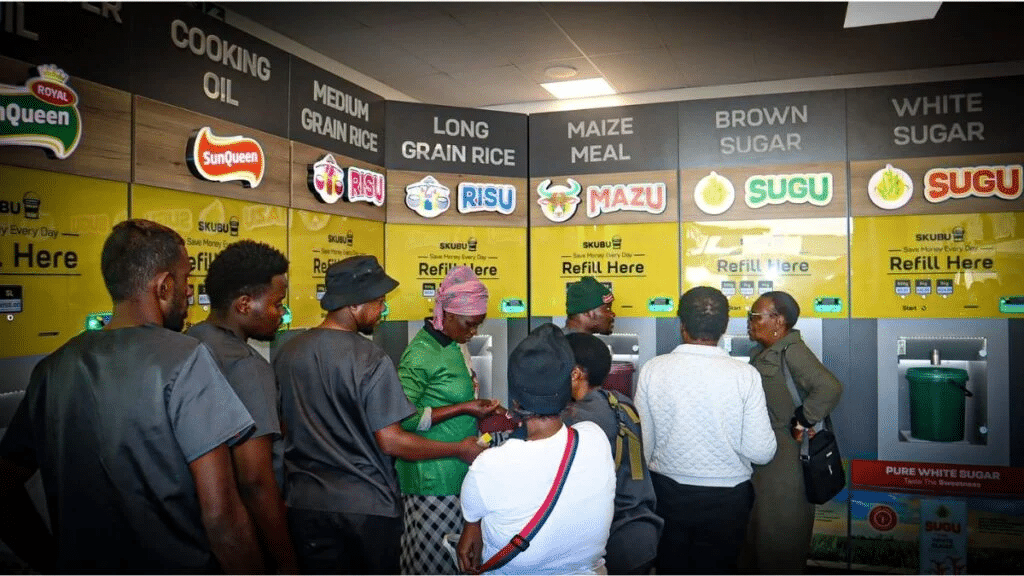
Meanwhile, Best Before is quietly building momentum with a different approach to affordability. The retailer specializes in short-dated food and personal care items sold at reduced prices. Since launching in Wendywood, Sandton, in 2017, it has grown to seven stores (six in Johannesburg and one in Pretoria), added a selection of unique imported brands, and now runs an online shop serving Gauteng—with digital expansion to other provinces in the pipeline.
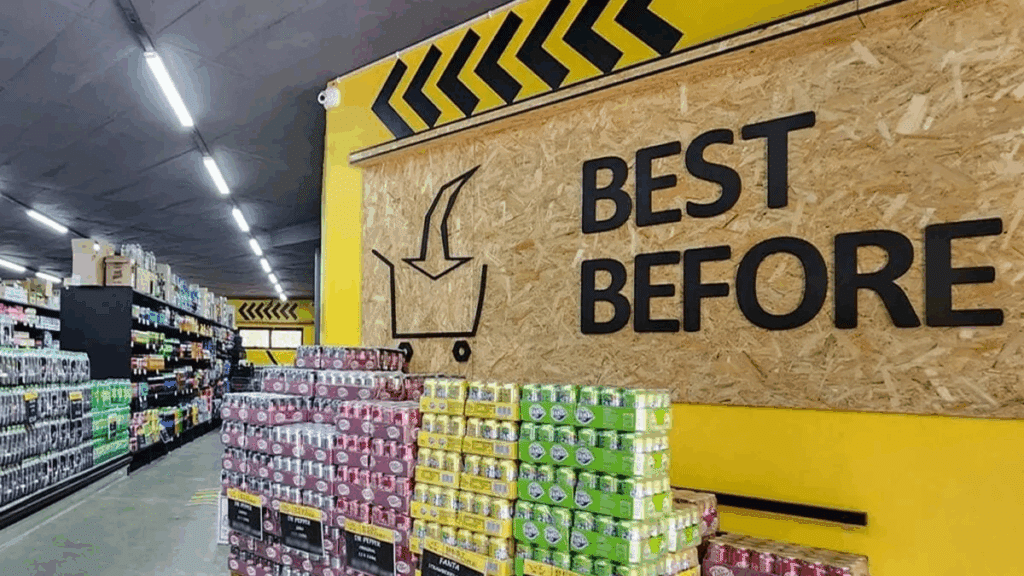
Premium grocery stores are on the rise
In contrast to these value-driven models, SPAR is targeting South Africa’s upper-income consumers. The group plans to open up to 40 “Gourmet” stores, offering premium grocery items, artisanal baked goods, and specialty coffee through a new partnership with Vida e Caffè. These stores are positioned to compete directly with Woolworths in the high-end retail space.
Pick n Pay refreshes its supermarket format and customer engagement
Pick n Pay is also updating its offer. Its new store at Westown Square in KwaZulu-Natal features an upgraded format with improved fresh food sections and added convenience like sushi counters and coffee bars. As part of its turnaround, the retailer is strengthening customer partnerships, becoming the primary grocery partner for eBucks, the rewards programme of major South African bank FNB. It has also secured a tier-one sponsorship with SA Rugby, the governing body for rugby union in South Africa.
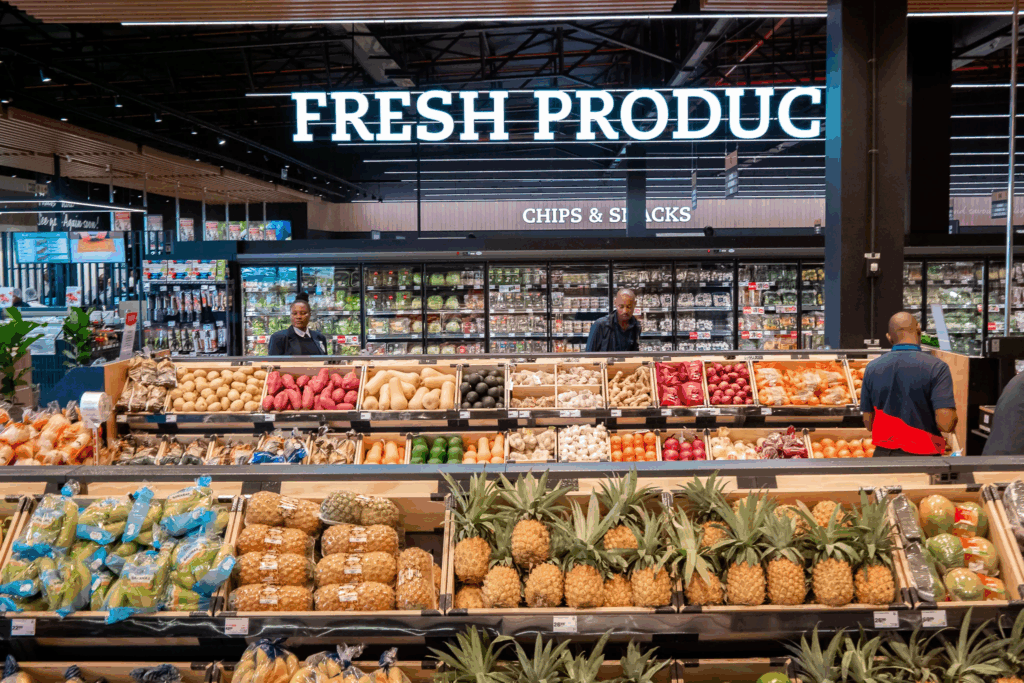
Online grocery shopping in South Africa gains momentum
Digital grocery shopping is growing fast in South Africa as more consumers turn to delivery apps for speed and convenience.
Checkers leads with its Sixty60 app, offering fast delivery of groceries (within 60 min) and a wide range of general merchandise. The service has rolled out to hundreds of locations and remains one of the most widely used on-demand grocery platforms in the country. Pick n Pay follows with multiple online shopping options, including asap! on-demand delivery, Click & Collect, scheduled home delivery, and integration with Mr D, a leading food and grocery delivery platform in South Africa. Meanwhile Woolworths Dash targets premium shoppers with a seamless app experience and curated product range.
As competition heats up, online grocery is becoming a key battleground for South Africa’s top retailers.
The future of grocery retail in South Africa is multi-format and consumer-driven
From refill stations and discount outlets to premium food halls and fast delivery apps, South Africa’s grocery sector is rapidly evolving to reflect changing consumer expectations. Retailers are no longer relying on a one-size-fits-all model. Instead, they’re tailoring formats to meet the diverse needs of shoppers across income levels, lifestyles, and channels.
As grocery retail trends in South Africa continue to shift, success will depend on how well retailers balance price, convenience, quality, and digital innovation to stay relevant in a highly competitive market.
More on the retail industry in South Africa
At Sagaci Research, we bring deep expertise and local insight into South Africa’s retail and FMCG sector. Our proprietary tools, such as SagaCube (consumption tracker), SagaBrand (brand health tracker), and retail audits, provide actionable data to understand market trends, shopper behaviours, and competitive dynamics across both formal and informal channels. Whether it’s tracking the rise of online grocery platforms, monitoring modern trade developments, or uncovering category-level insights, we help brands and retailers navigate the market with confidence.
For tailored insights on South African consumer behaviour, grocery retail trends, or modern trade expansion, get in touch!
Images: © BusinessTech | African Retail



